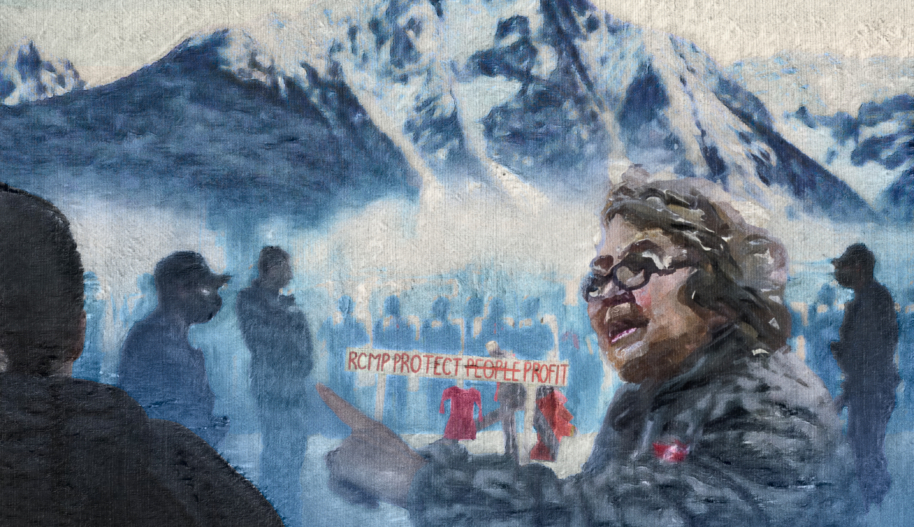Background
Amnesty International’s new research report, “Removed from our land for defending it: Criminalization, Intimidation and Harassment of Wet’suwet’en Land Defenders”, was launched on December 11, 2023. The research is a years long collaborative project between Amnesty International and the Wet’suwet’en Nation. The report’s launch coincides with the 26th anniversary of the Supreme Court of Canada’s decision in Delgamuukw v British Columbia, a ruling which reaffirmed Wet’suwet’en customary law and the authority of the Wet’suwet’en Hereditary Chiefs.
In July 2022, when Amnesty received the news of ongoing violation of human rights against Wet’suwet’en land defenders we sent researchers and campaigners for a scooping mission to assess the allegations. During the initial inquiry, Amnesty delegates observed and documented several violations of human rights, and it became clear that an in-depth investigation was necessary.
Hand in hand with the research process, Amnesty International has issued urgent actions, mobilized the public to send letters and petitions to key decision makers, made submissions to the UN human rights mechanisms and other regional human rights bodies urging them to put pressure on Canada to respect the rights of Wet’suwet’en land defenders.
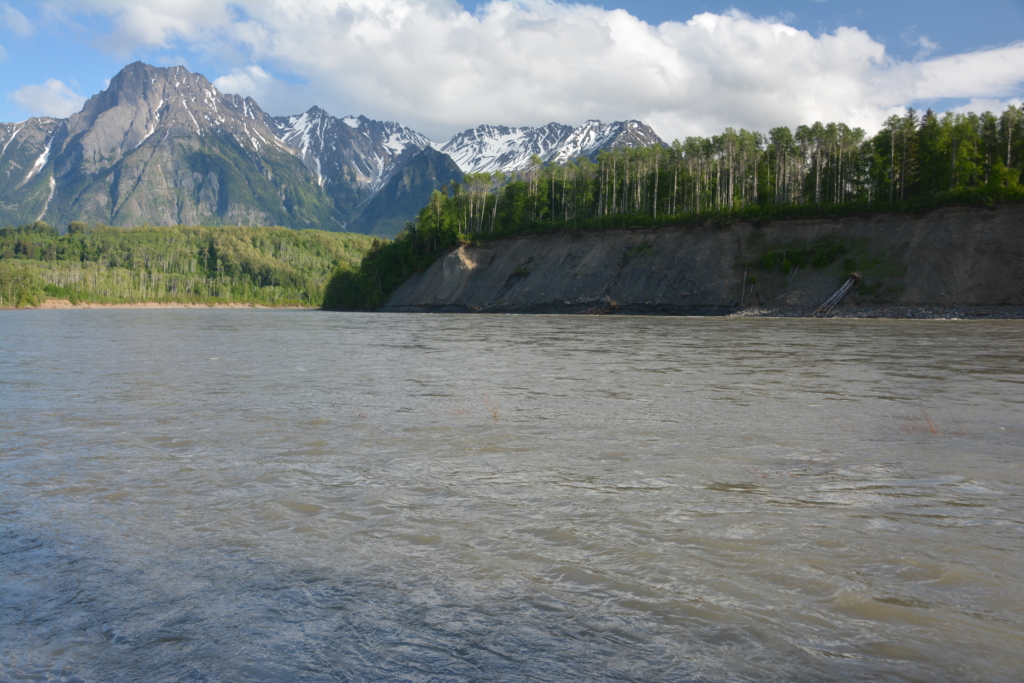
Findings
Amnesty International observed a series of human rights violations inflicted upon members of the Wet’suwet’en Nation by the authorities of Canada and British Columbia, Coastal GasLink (CGL) Pipeline Ltd. and TC Energy, the corporations building the pipeline, and Forsythe Security, a private security firm contracted by CGL Pipeline Ltd.
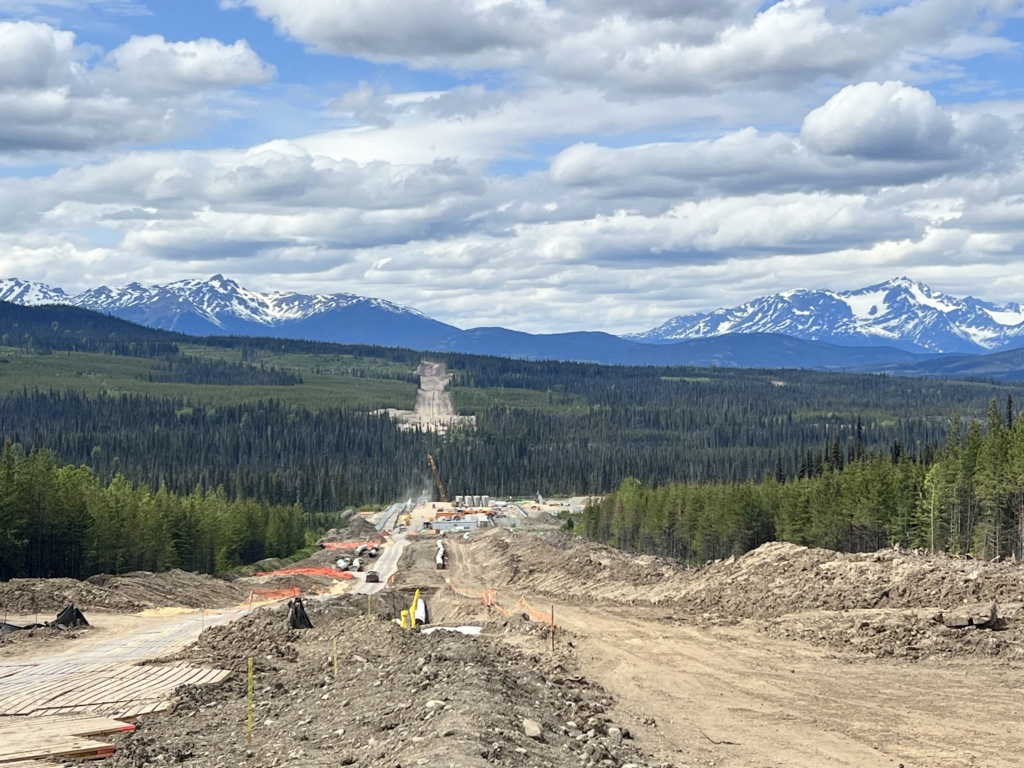
Lack of Free, Prior and Informed Consent
The report underscores the lack of proper consultation with the Wet’suwet’en people. Amnesty International considers that the consultation process for the CGL pipeline did not meet the criteria and standards developed by international human rights law breaching the Wet’suwet’en Nation’s collective right of free, prior and informed consent. Instead of obtaining the free, prior, and informed consent of the Wet’suwet’en people and their Hereditary Chiefs, CGL focused on signing benefit agreements with the band councils which causes divisions within the community.
The Wet’suwet’en Hereditary Chiefs rejection of the CGL pipeline project was based on the potential serious impacts to Wet’suwet’en territory and the fact that CGL did not provide sufficient, detailed information for the Nation to adequately analyze these impacts.
There’s all the evidence there that for decades [the province] was clearly recognizing the Wet’suwet’en Hereditary Chiefs. And then as soon as the Hereditary Chiefs became an impediment to this major project, this whole narrative of the Band Councils came up and all these narratives that attack the legitimacy of the Wet’suwet’en Hereditary Chiefs began to emerge.
Kolin Sutherland-Wilson
When CGL failed to get the consent of Wet’suwet’en Hereditary Chiefs, it sought a court injunction that enabled it to criminalize Wet’suwet’en land defenders for exercising their right to freedom of assembly and their Indigenous rights for defending their land. By using these injunctions several Wet’suwet’en land defenders have been criminalized and the remaining land defenders will go to trial from 8th to 18th January 2024. The UN Special Rapporteur on the situation of human rights defenders has observed that “legal forums are increasingly being used to silence [land] defenders, particularly those who oppose large-scale development projects and the actions of companies”.
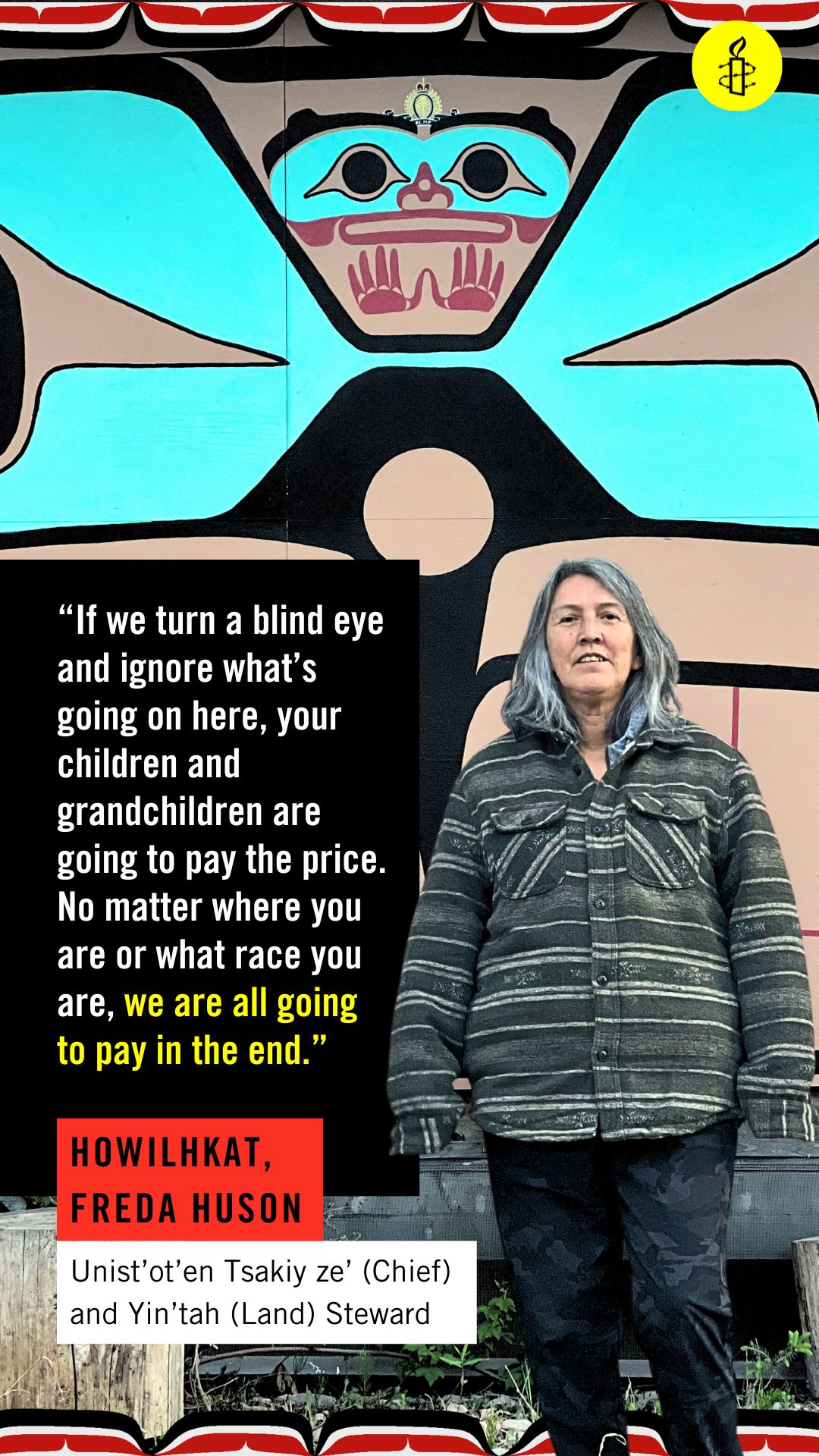
After the injunction got handed down, [CGL] came in and they cut our gate, they took everything down, all the wooden gates
Freda Huson (Chief Howihkat)
Four Large Scale Raids
Between January 2019 and March 2023, the Royal Canadian Mounted Police (RCMP) and the Critical Response Unit (CRU – formerly known as C-IRG)have undertaken four large-scale police operations against Wet’suwet’en land defenders and their supporters on Wet’suwet’en territory. According to the RCMP, the January 2019, February 2020 and November 2021 police operations were in response to instances in which Wet’suwet’en land defenders and their supporters took peaceful land defence and assembly actions to impede pipeline construction by blocking the Morice Forest Service Road (FSR) or, in November 2021, access to a pipeline construction site. The RCMP has justified its actions as enforcing the terms of the injunction order which prohibit individuals from taking actions that impede pipeline construction on the Morice FSR.The RCMP indicated to Amnesty International that it “is responsible for enforcing the [B.C.] Supreme Court Injunction in the Morice area but only takes enforcement action when protester activities are no longer peaceful, lawful or safe. Enforcement actions are limited to the arrest of contemnors for breaching the Injunction, or for any Criminal Code offences they’ve committed, and their safe removal for obstructions.”
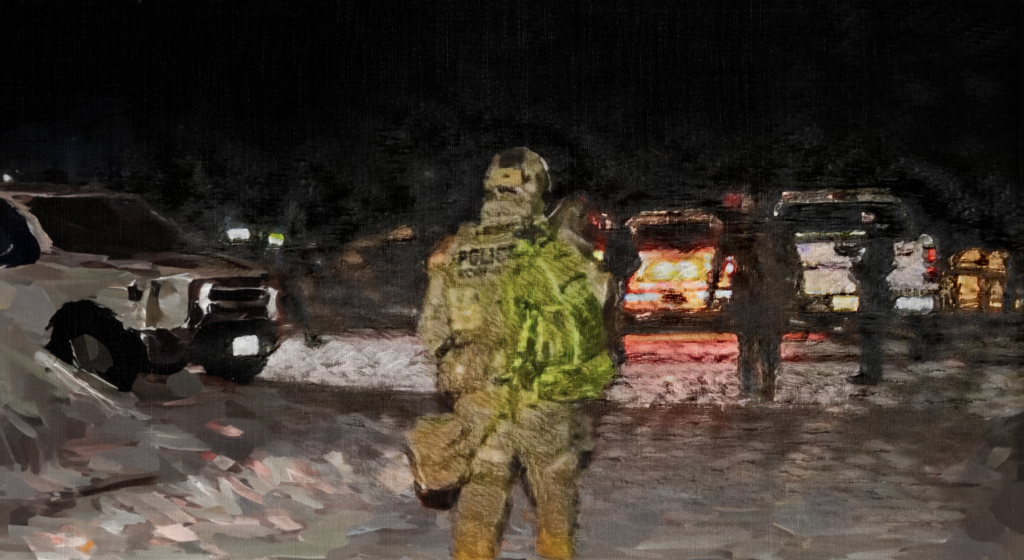
Indigenous land defenders regularly face disproportionate use of force by law enforcement officers during mass arrests, especially in response to camps and other resistance tactics that they take in struggles against development projects. During the four large-scale raids, the RCMP was equipped with semi-automatic sniper rifles, helicopters and dogs. Amnesty International is not aware of any allegations that Wet’suwet’en land defenders or their supporters were armed or acted violently. According to land defenders interviewed by Amnesty International and media reports, while being arrested, the RCMP used force, including beating, hitting, punching and pushing land defenders, even though they were acting peacefully.
Violations of Several Human Rights
Patrols and incursions into Wet’suwet’en Territory: Wet’suwet’en land defenders interviewed by Amnesty International indicated that they have near daily encounters with the RCMP and CRU which they deemed to be intimidating, invasive and excessive
Random police stops and questioning: Wet’suwet’en land defenders shared that they are constantly pulled over by RCMP officers while travelling on the Morice FSR, as well as in nearby cities including Houston and Smithers, all of which are located within Wet’suwet’en territory. According to Wet’suwet’en land defenders, these encounters ranged from random stops under the pretense of “safety inspections”, stops to monitor drinking and driving, and stops resulting in fines due to allegedly dirty license plates
Arbitrary Arrest: Over the four large-scale police raids, the RCMP arrested approximately 77 land defenders. Amnesty International considers that those arrested solely for exercising their Indigenous rights and right to freedom of peaceful assembly were arbitrarily arrested
Detention Conditions: The land defenders arbitrarily arrested in November 2021 were held in custody for 4 to 5 days prior to their bail hearings. Amnesty also observed that some land defenders were striped and shackled which according to the Inter Human Rights American court constitutes inhuman or degrading treatment.
Criminal charges and ongoing trials: Amnesty International considers that the injunction is not a permissible restriction on the land defenders’ human rights because it applies to the Wet’suwet’en Nation’s unceded territory in an overbroad manner and does not fulfil the requirements of necessity and proportionality. The organization also considers that the land defenders arrests were arbitrary. Consequently, there is no basis for the criminal contempt charges
Racial Discrimination: Everyone has the right to be free from racial discrimination. Amnesty International observes that one of the underlying factors in how Wet’suwet’en land defenders’ human rights are being violated is entangled with their Indigenous origin and the predominance of an extractivist model that is being imposed without recognizing their right to free, prior and informed consent. Amnesty International considers that the treatment experienced by Wet’suwet’en land defenders amounts to racial discrimination.
Being surveilled and followed: RCMP and CRU officers, and Forsythe Security employees, follow members of the Wet’suwet’en Nation travelling through their territory along the Morice FSR, as well as in nearby cities. Amnesty’s research team were also followed, photographed and filmed by the RCMP and Forsythe Security on multiple occasions. When Amnesty International shared this with CGL and asked the company about Forsythe Security’s mandate, CGL representatives only responded that Forsythe Security monitors the road “to control access to its worksites to ensure the safety of both the public and its workers” and that they “want to know where people are”.
Threats and acts of gender-based violence and discrimination: The majority of Wet’suwet’en land defenders on the frontline of resistance against the CGL pipeline are women. Indigenous women often have profound relationships with their lands and culture. At the same time, they play an essential role as leaders, knowledge-bearers and transmitters of culture among their families, Peoples, Nations and society as a whole. Women Wet’suwet’en land defenders shared with Amnesty International information about multiple instances of threats and acts of gender-based discrimination and violence that have been committed against them by the RCMP, Forsythe Security and CGL employees.
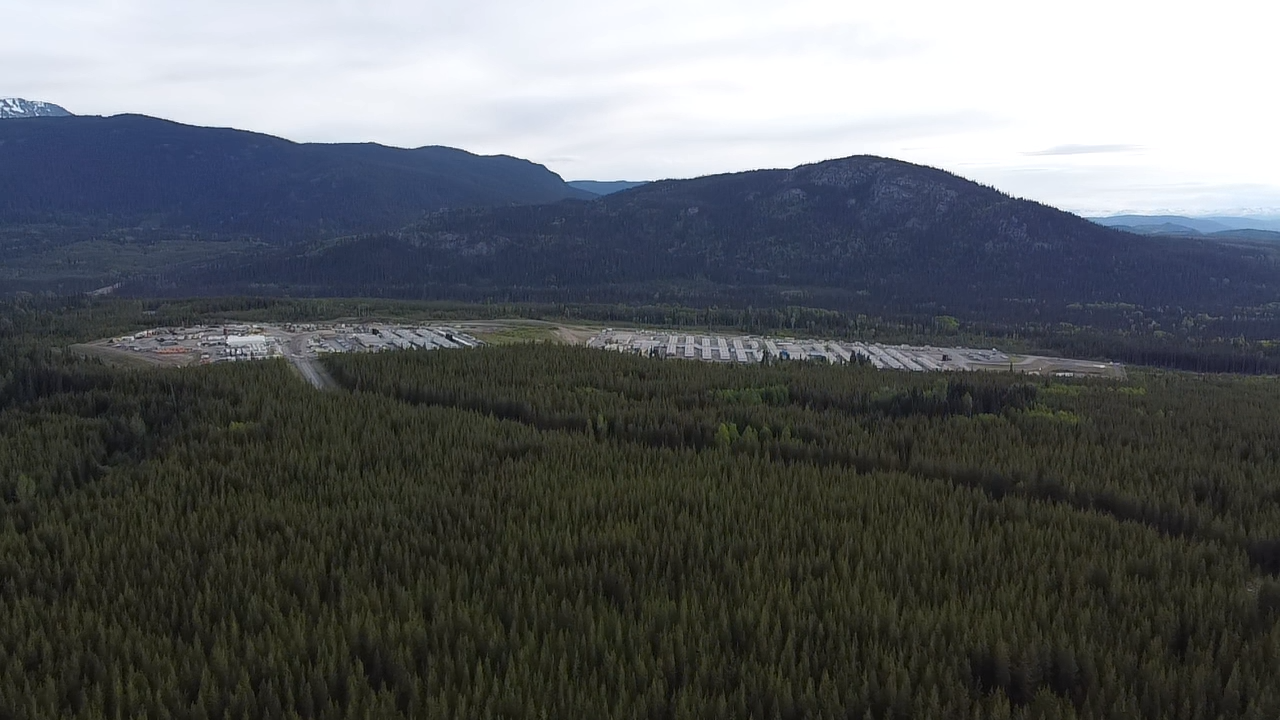
We’re on the Highway of Tears where a lot of Indigenous women went missing and murdered. That’s the scary part. I fear for others. I wouldn’t walk alone at night
Jocelyn Alec, Wet’suwet’en Land Defender
Collective rights of Indigenous Peoples: The collective rights of Indigenous Peoples to lands, territories and resources are firmly embedded in United Nations Declaration on the Rights of Indigenous Peoples. Members of the Wet’suwet’en Nation shared with Amnesty International that the CGL pipeline project and associated violence against land defenders has resulted in people losing a connection to the territory, which in turn has negatively impacted the Nation’s ability to continue its cultural practices and traditional way of life.
Not only is Canada violating the human rights of Wet’suwet’en land defenders, but it is also failing to respond to and effectively implement numerous recommendations made by human rights mechanisms on this issue.
Major Recommendations and Action Items
Based on our findings we made several recommendations, including:
- Immediately halt the construction and use, and suspend all permits and approvals, for the Coastal GasLink pipeline in the unceded territories of the Wet’suwet’en Nation.
- Drop the criminal contempt charges against Wet’suwet’en land defenders. Based on our research finding, Amnesty International considers that the injunction is not a permissible restriction on the land defenders’ human rights because it applies to the Wet’suwet’en Nation’s unceded territory in an overbroad manner and does not fulfil the requirements of necessity and proportionality. Amnesty International also considers that the land defenders arrests were arbitrary. Consequently, there is no basis for the criminal contempt charges. Amnesty International calls for these charges to be dropped immediately. Amnesty International considers that the arbitrariness of the land defenders’ arrests, their detention conditions and that the criminal charges being brought against them have no basis, constitute violations of their rights to liberty and security of the person.
That is why for our Write for Rights campaign, we are asking Canada to drop charges against criminalized Wet’suwet’en land defenders. And immediately halt the harassment, intimidation, unlawful surveillance and criminalization of Wet’suwet’en land defenders and withdraw the Royal Canadian Mounted Police and associated security and policing services from the Wet’suwet’en Nation’s territory.












